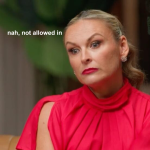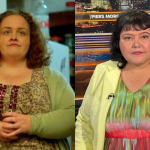
UPDATE 19/01/2022: So, the advice for booster shots has been updated in the wake of the Omicron wave, meaning now you get your booster shots earlier (yay!). However, the changing COVID situation has also left quite a few people with questions: so, here are some answers.
How soon can I get a booster after having COVID?
If you’ve had the big C-19, you might be wondering if it’ll impact your ability to get boosted and be extra-protected against re-contracting the virus.
The good news is that, as a general rule, you can get your booster shot as soon as you stop showing COVID-19 symptoms.
Dr Vinod Balasubramaniam, an expert in virology at Monash University in Malaysia, told PEDESTRIAN.TV that it was super important to get boosted even if you’ve had COVID.
“We have two types of immunity, natural (infection) and acquired (vaccines). We know that most of the time, the immunity from vaccines is much more longer lasting than natural infection,” he said.
“So, it is pertinent that despite getting previously infected, one should be strongly encouraged to get the vaccine.”
According to Dr Balasubramaniam, you shouldn’t get the booster if you still have symptoms or if you haven’t ended your quarantine period yet.
“Ideally we should wait to recover from all of the COVID-19 symptoms,” he said.
“That means we can get a booster shot as soon as 10 days after the COVID symptoms started.”
So, if you’re symptom free after having COVID, go forth and get boosted!
When can I get the booster?
On January 19th, Vic, SA, NSW and the ACT reduced the COVID-19 booster jab interval to three months down from four months after your second vaccine dose.
In NSW, you’ll be able to book in to get your three-month booster at state-run clinics from Friday the 21st of January and in Victoria, it’ll be from Wednesday the 19th.
For those in South Australia and the ACT, the three month booster is available now.
If you’re in NSW and want to score a three-month booster from a GP or pharmacy, you’ll have to wait until January 31st to book it in, which is in line with the federal government’s OG guidelines.
Originally, the booster interval was supposed to be reduced from four months to three months at the end of January, but some state governments have now pushed that forward to help ease pressure on hospitals.
In the other states and territories, the booster is available four months after your second vax.
ORIGINAL 12/12/2022: Earlier this month, PEDESTRIAN.TV reported that the federal government had changed the timeline for booster shots to manage the spread and severity of Omicron in Australia. Now, it appears that timeframe may be shortened even further.
There’s a lot of information flying around about it so we’re gonna bring you up to speed on all the deets.
Will a booster shot help?
The reason for this change is a result of fresh evidence regarding the protection of the vaccine against Omicron.
“In the last week, in fact last night and the night before, there was more evidence that came around the protective effects of boosters, but also that waning element [of the vaccine],” Chief Medical Officer Paul Kelly said.
“And so the best evidence [ATAGI] have got at the moment is for between three and four months.
“Just because you get to three months, or four months, or five months, or six months you do not immediately lose your protection, that’s not the case,” he said.
“It does decrease over time. It remains in place for severe infection but it is diminished for Omicron compared with Delta.”
The Chief Medical Officer has also said that new information revealed protection against COVID would be improved by boosters.
“We know that unfortunately two doses does not change that ability to become infected a great deal. Again it wanes over time,” Professor Kelly said.
“But that protection against infection is diminished against Omicron, that’s quite clear, but again with a booster it goes back towards the same levels as Delta.”
What booster can I get in Australia?
Both Moderna and Pfizer have been approved for use as a booster shot by Australia’s senior vaccine advisory body, ATAGI.
You may get either Moderna or Pfizer regardless of which shot you had for your initial two doses.
The Astrazeneca jab was not included in list of recommended booster shots.
Victoria’s Chief Health Officer Brett Sutton agreed with ATAGI’s advice.
Thanks ATAGI. There is an urgent need for third doses/boosters. Don’t delay if you’re due. I’ll now get mine before Christmas. https://t.co/jhoR9s8g4E
— Chief Health Officer, Victoria (@VictorianCHO) December 11, 2021
Despite the alterations to the rollout, the end of the day vaccines are not our only form of protection against COVID. Be sure to wear a mask when possible, sign-in to venues and keep a look out for exposure sites.
Do I need to get my booster before going overseas?
There are no booster requirements in place for leaving or returning to Australia, but more and more countries around the world are recognising that boosters are essential.
If you’re thinking about travelling abroad — which still seems fkn wild and scary — be warned: several countries have updated their entry requirements lately to require some travellers be boosted.
Some countries are putting expiry dates on vaccine passports, or time frames in which you need to have been last jabbed.
Croatia was the first country in the world to require travellers to have been vaccinated within the last 365 days.
As of February 1, if you want to go to Spain you have to either have received your second dose within the last nine months, or be boosted. Same goes for the Netherlands, Switzerland and Singapore.
In Greece that time period is just seven months, and in Israel and Austria, it’s six.
If you’re craving waffles, your second dose will have had to have been within the last five months — or you’ll have to be boosted.
So check your dates and stay safe out there, folks!



